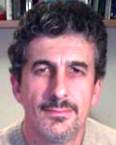IEEE ICC 2012 Tutorials Program
Friday, June 15, Morning
T07: Inter-Vehicular Communication: Standards, Protocol Design,
and Integrated Security Metrics
Friday, June 15, Morning
- Speakers:
- Falko Dressler, University of Innsbruck, Austria
Claudio Casetti, Politecnico di Torino, Italy - Abstract:
- This tutorial covers the most recent progress in Inter-Vehicular Communication. In a first part, we investigate the requirements on IVC ranging from traffic information systems to safety applications with real-time communication constraints. Typical IVC approaches are introduced including fully distributed as well as infrastructure-based, and centralized 3G/4G solutions. Emphasis is laid on the most recent standardization activities in the DSRC/WAVE context. We continue to discuss relevant protocols and communication principles to provide detailed information on which communication methods can be applied and how IVC protocols are developed. We study ad hoc routing approaches and their limitations to cover wide areas as well as recent geo-routing and broadcast-based data dissemination techniques. The main focus, however, will be on recently developed beaconing approaches that can easily be built upon the IEEE 802.11p protocol standard. The second part of the tutorial will focus on Secure IVC. Relying on broadcast transmissions, IVC solutions are exposed to multiple threats. Attacks are not easily prevented because of the ephemeral nature of IVC links and the constant movement of vehicles, as well as by the stringent timing requirements of IVC applications. We discuss the vulnerabilities of IVC solutions in terms of identity management, message authentication/protection/consistency, privacy protection and in-vehicle security. This overview will provide attendees with the state of the art as well as the open challenges in the field of secure IVC.
- Speaker Bios:

Falko Dressler is a Full Professor of Computer Science heading the Computer and Communication Systems Group at the Institute of Computer Science, University of Innsbruck. He teaches on self-organizing sensor and actor networks, network security, and communication systems. Dr. Dressler received his M.Sc. and Ph.D. degree from the Dept. of Computer Science, University of Erlangen in 1998 and 2003, respectively. Dr. Dressler is an Editor for journals such as Elsevier Ad Hoc Networks, ACM/Springer Wireless Networks (WINET), and Elsevier Nano Communication Networks. He was guest editor of special issues on self-organization, vehicular networking, and bio-inspired computing and communication for IEEE Journal on Selected Areas in Communications (JSAC), IEEE Communications Magazine, Elsevier Ad Hoc Networks, and others. Among other, Dr. Dressler wrote the textbooks Self-Organization in Sensor and Actor Networks, published by Wiley in 2007. Dr. Dressler is an IEEE Distinguished Lecturer in the fields of inter-vehicular communication, self-organization, and bio-inspired networking. Dr. Dressler is a Senior Member of the IEEE (COMSOC, CS, VTS) as well as a Senior Member of ACM (SIGMOBILE). His research activities are focused on adaptive wireless networking and self-organization methods addressing issues in wireless ad hoc and sensor networks, inter-vehicular communication systems, bio-inspired networking, and adaptive network security techniques.

Claudio Casetti got his M.Sc. degree in Electrical Engineering from Politecnico di Torino, Italy. He got his PhD in Telecommunication Engineering from the same institution and he is currently an Assistant Professor at Dipartimento di Elettronica. He has published more than 130 papers in peer-refereed international journals and conferences on the following topics: Transport and network protocols in wired networks, IEEE 802.11 WLANs, Vehicular networks, Ad hoc and sensor networks. He holds one patent from the U.S. Patent Office and two from the E.U. Patent Office. He serves in the TPC of the main international conferences in the networking field (e.g., IEEE INFOCOM, IEEE GLOBECOM or IEEE ICC). He was the Workshop Co-Chair of IEEE INFOCOM 2009, the Technical Program Co-Chair of IEEE WONS 2009 and the General Co-Chair of IEEE WONS 2010. He was Principal Investigator in the Alcatel France - Politecnico di Torino research contract on "End-to-end QoS Solutions in wireless networks" (2003-2004). He was principal investigator in the VICSUM project on vehicular networks funded by Regione Piemonte (2007-2009). He has acted as Team Leader for Politecnico di Torino in the FP6 Network of Excellence - NoE "Euro-NGI" (2003-2006), the FP6 NoE "Euro-FGI" (2006-2008) and the FP7 NoE "Euro-NF" (2008-2011). He is a member of IEEE. He has been a visiting scholar at Umass Amherst, UCLA and UCSD.
T08: New Frontiers in Opportunistic Communication Friday, June 15, Morning
- Speakers:
- Aria Nosratinia, University of Texas at Dallas, USA
- Abstract:
- Opportunistic communication is a simple but effective method of leveraging multiple fading realizations to make the best instantaneous use of wireless resources. This simple idea has found many manifestations, from multi-user diversity to antenna selection to relay selection. Moreover, recent developments hint that opportunistic methods may find a wider breadth than previously thought. This tutorial outlines the principles, tools, and applications of opportunistic communication, with special attention to potential future developments and research directions. The tutorial begins with a historical background and explores the classical multi-user diversity and its extensions. Various aspects of this problem, including limited feedback, will be discussed. Relay selection is another important instance of opportunistic communication. An outline of known results in relay selection will be presented and potential future directions will be discussed. The related area of MIMO antenna selection will be visited. Finally two advanced topics will be presented: first, new results will be presented that allow the extension of opportunistic communication and its analysis to network topologies that previously could not be analyzed under multiuser diversity, for example the broadcast relay channel. Second, the application of multiuser diversity in cognitive radio will be discussed.
- Speaker Bios:

Aria Nosratinia is Jonsson Distinguished Professor of Engineering and Computer Science at the University of Texas at Dallas. He received his PhD in Electrical Engineering from the University of Illinois at Urbana-Champaign in 1996. He has held visiting positions at Princeton University, Rice University and UCLA. His interests are in the area of signal processing and communication for wireless networks. His research in the recent past has concentrated on cooperative and opportunistic wireless communications, an area in which he is widely published and cited. He is currently serving as associate editor for the IEEE Trans. Wireless Communications. He has been a past editor for the IEEE Trans. Information Theory, IEEE Transactions on Image Processing, and IEEE Signal Processing Letters. He has been on the organizing committees of several IEEE conferences. He has received the National Science Foundation Career award, as well as two chapter awards from the IEEE Signal Processing Society. He was elected IEEE Fellow “for contributions to multimedia and wireless communication.”
T09: Remote Wellbeing Monitoring in 4G Networks Friday, June 15, Morning
- Speakers:
- Abd-Elhamid M. Taha, Alfaisal University, Saudi Arabia
Najah Abu Ali, United Arab Emirates University, UAE
Hossam S. Hassanein, Queen’s University, Canada - Abstract:
- The impacts of Remote Wellbeing Monitoring (RWM) extend beyond basic lifestyle gains to reach serious humane and economic consequences. The upcoming IMT-Advanced or 4G technologies will empower RWM services with substantial improvements through the use of advances such as multi-carrier access techniques, MIMO, flat architectures, small cells and convergence to all-IP networks. 4G access also promises a “greener” mobile user experience. Deployment of RWM over 4G networks, however, is not without challenges. As a network service, RWM may have stringent constraints in terms of Quality of Service (QoS), reliability and security. The nature of RWM traffic is also mixed (delay-constrained data streams, high resolution images, videos, etc.), and require particular attention from service providers given that lives might be at stake. The tutorial starts with motivating RWM services, offering an up-to-date view of the industry and the market status. It then details the technical requirements of RWM in terms of overall system design, system components, and network considerations. A primer is then provided for IMT-Advanced networks, taking 3GPP’s LTE-Advanced as an example. We review technologies and advances enabling the realization of 4G access networks. Finally, an overview of the research challenges facing dense deployment of RWM services will be given.
- Speaker Bios:

Abd-Elhamid M. Taha received his B.Sc. and M.Sc. in Electrical Engineering from Kuwait University, Kuwait in 1999 and 2002, and his Ph.D. from the Department of Electrical and Computer Engineering of Queen’s University, Canada in September 2007. He is currently an Assistant Professor at Alfaisal University in Saudi Arabia and an Adjunct Assistant Professor at the School of Computing in Queen’s University, Canada. Dr. Taha has authored several publications including journals, refereed conference papers, and book chapters. He also served as a technical program committee in several international conferences and symposia. His areas of interest include radio resource management in wireless and mobile networks, especially in the context of wireless overlays with heterogeneous access and wireless relay networks. His recent activity includes co-founding the IEEE Workshop on the Design, Modeling and Evaluation of Cyber Physical Systems (CyPhy’11). Dr. Taha has presented two tutorials before at flagship IEEE conferences including IEEE ICC 2011 and VTC 2010. He is currently a member of both the IEEE and the ACM.

Najah Abu Ali received her B.S. and M.S. degrees in Electrical Engineering from University of Jordan, Amman, Jordan and her PhD degree in 2006 in Computer Networks in Electrical Engineering department at Queen's University, Kingston, Canada. She joined the College of Information Technology, United Arab Emirates University (Al Ain, UAE), as an Associat Professor with the Computer Networks Engineering track. She had a postdoctoral fellowship at the School of Computing, Queen's University from January 2006 to August 2006. Her research interests comprise wired and wireless communication networks. Specifically, analytical and measurement based network performance management and Quality of Service and resource management of single and multihop wireless networks. Dr. Abu Ali is an expert on Broadband Wireless Networks architecture, design, QoS provisioning and performance and has published extensively in the area. She delivered several tutorials before including one on Resource Management in WiMax Networks at ICC 2008, an overview of IEEE 802.16/WiMAX at CCNC 2009, and two on IMT-Advanced standardization and technologies, presented in Globecom 2009 and VTC-Fall 2010.

Hossam Hassanein is a leading authority in the areas of broadband, wireless and mobile networks architecture, protocols, control and performance evaluation. His record spans more than 400 publications in journals, conferences and book chapters, in addition to numerous keynotes and plenary talks in flagship venues. Dr. Hassanein has received several recognition and best papers awards at top international conferences. He is also the founder and director of the Telecommunications Research (TR) Lab at Queen's University School of Computing, with extensive international academic and industrial collaborations. Dr. Hassanein has. He is a senior member of the IEEE, and is currently chair of the IEEE Communication Society Technical Committee on Ad hoc and Sensor Networks (TC AHSN). Dr. Hassanein is an IEEE Communications Society Distinguished Speaker (Distinguished Lecturer 2008-2010).








